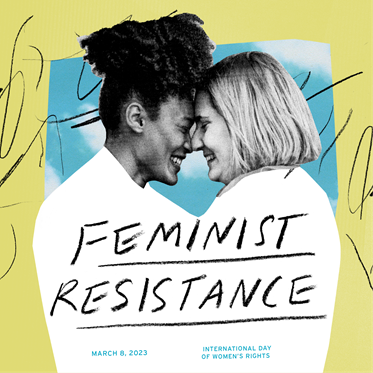News
Meeting with Minister Biron | The Collectif 8 mars is left unsatisfied
March 17, 2023

Québec City – In the aftermath of International Women’s Rights Day, the Collectif 8 mars – which represents nearly 800,000 women in Québec – met with Martine Biron, the minister for the status of women. The Collectif viewed this first meeting as an opportunity to understand her vision of the importance of Québec’s feminist movement and her priorities in defending and advancing the rights of all women in Québec.
Unfortunately, representatives of the Collectif found the meeting disappointing. “The minister in charge of defending the rights of women in Québec’s cabinet has no concrete action plan or priorities for marginalized women,” said Marie-Andrée Gauthier, spokesperson for the Collectif 8 mars. “Members of the Collectif deeply regret that the tone used by the minister was not conducive to constructive exchanges that might improve the living conditions of all women. We’re left unsatisfied.”
Participants attending the meeting insisted on the need to consider women’s different realities and the distinct issues they face. “This meeting was an opportunity to explain our slogan, Feminist Resistance,” said Karine Drolet, also a spokesperson for the Collectif. “The theme chosen for March 8 is grounded in our diversity, fuelled by our anger, and nourished by our sisterhood. All women have the same right to be respected and defended.”
Intersectional gender-based analysis (GBA+)
Given the government’s rejection of a motion on intersectional gender-based analysis put forward by the Collectif 8 mars and opposition parties at the National Assembly on February 21, a significant part of the meeting was spent discussing the importance of this tool. The Collectif argues that GBA+ would enable the government to prevent inequalities between men and women from being reproduced or created through its actions, and to address the systemic discrimination that can occur as part of seemingly neutral interventions. Intersectional gender-based analysis is also an important tool to counteract the overlapping forms of discrimination experienced by marginalized women.
Public services and social programs
The pandemic highlighted the essential nature of women’s work in public services, particularly in the education and health and social service systems. The chronic underfunding of these sectors has had the greatest impact on women, both because they are employed in public services and social programs and because they make up a majority of the people using these services.
Less than a week before the Québec government tables its budget, the Collectif asserts once again that we need to massively reinvest in public services to respond to Quebecers’ legitimate expectations and needs. The government must view the money dedicated to public services as an investment rather than an expenditure.
It’s worth noting in this regard that many women experience significant obstacles in gaining access to public services and social programs because of their situation as a disabled person, their age, their appearance, their gender identity, their religion, their skin colour, their orientation, or their migration status.
Discrimination in the labour market
Women’s participation in the labour market contributes to their financial independence and helps enrich society as a whole. Unfortunately, women from marginalized communities find it more difficult to access the labour market and are often overrepresented in risky and ill-paid jobs.
As the government strives to find new ways of alleviating the labour shortage, it needs to seize this opportunity to end the discrimination experienced by marginalized women in the labour market.
The right to housing
The current housing crisis is caused by a lack of social housing combined with skyrocketing rent levels and property prices, at a time when purchasing power is reduced by inflation and poverty is on the rise. This crisis does not affect everyone in the same way: women, families, and racialized people are particularly exposed to it.
The Collectif 8 mars therefore urges the Québec government to formally acknowledge housing as a right. Housing is one of the key social determinants of an individual’s overall health, and could be a way of helping women create a space ensuring their safety and quality of life. But when access to housing is difficult, it becomes a source of constant worry that increases women’s already significant mental burden.
Members of the Collectif 8 mars hope to maintain fruitful collaborations with government work teams. This is a vitally important step to ensure that the issues presented to the minister can be dealt with and that the problems associated with them can quickly be solved.
The Collectif 8 mars
The Collectif 8 mars brings together labour unions and independent feminist community organizations representing nearly 800,000 women, 17 regional roundtables on the status of women, and more than 450 women’s and mixed-gender groups.
